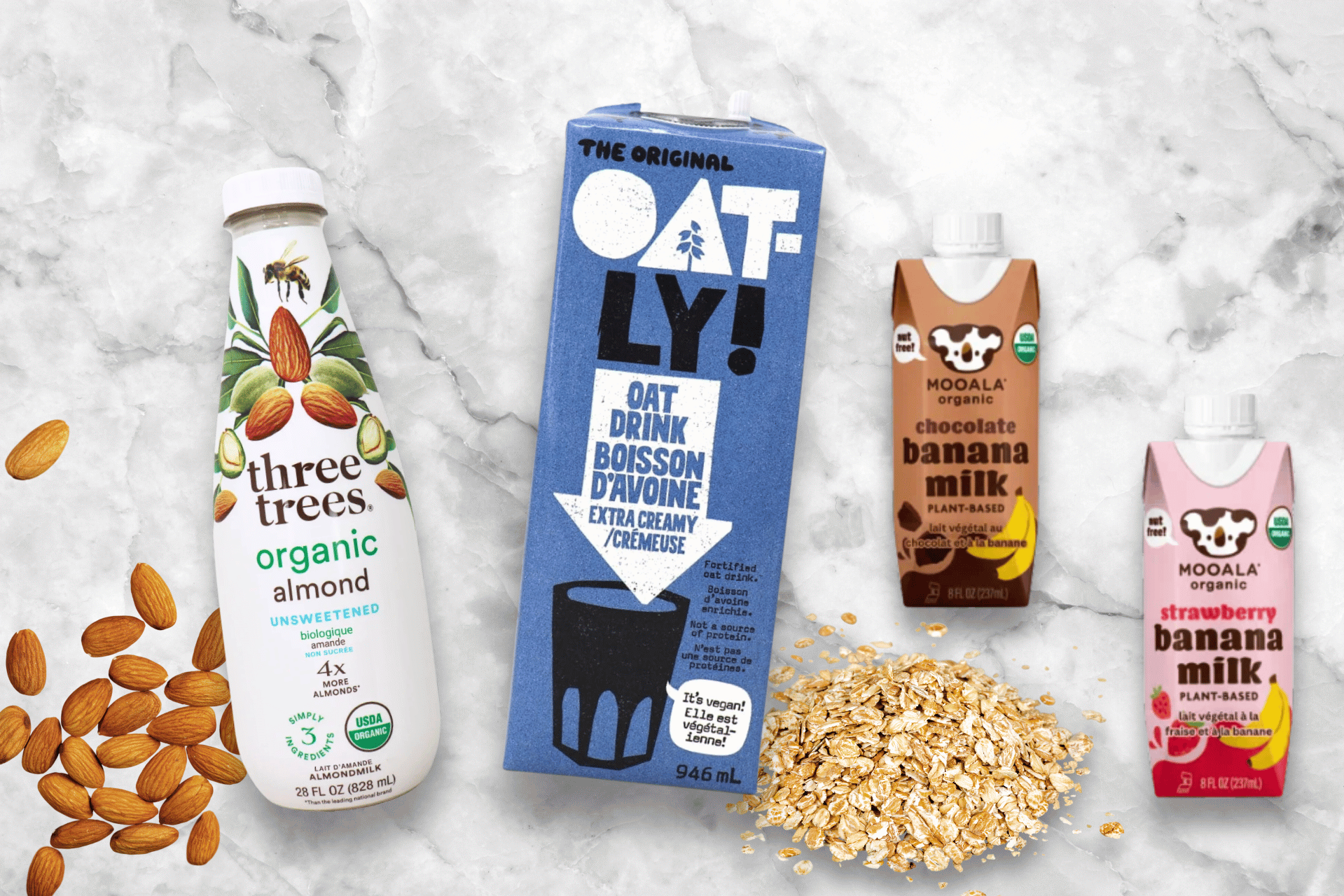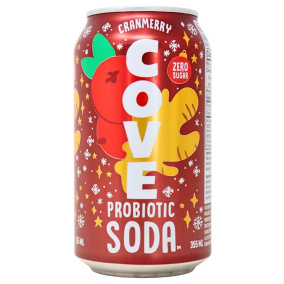
Are Plant-Based Dairy Alternatives Healthier? What You Need to Know
Are plant-based dairy alternatives really healthier? This guide breaks down what you need to know when choosing between traditional and alternative dairy products.
Walk through any grocery store today and you'll spot dozens of milk alternatives lining the refrigerated shelves. Natura Market plant based dairy selection showcases just how far these products have evolved. But here's the million-dollar question, do these trendy alternatives actually beat traditional dairy when it comes to health?
Breaking Down the Basics
Think about it. Almonds transformed into milk. Oats becoming cream. Cashews morphing into cheese. These transformations represent more than kitchen wizardry, they're reshaping how people approach nutrition.
Each alternative brings something different to the table. Coconut milk delivers tropical richness. Soy provides substantial protein. Hemp seeds offer omega fatty acids. Rice milk stays gentle on sensitive stomachs. The sheer variety means shoppers face both opportunity and confusion.
Here's what matters: plant based dairy products can be a healthy alternative to regular dairy with less side effects for certain people. That's not marketing fluff. It's backed by growing evidence that suggests these alternatives address real dietary challenges millions face daily.
Numbers Tell Stories
Traditional cow's milk packs about 8 grams of protein per cup. Soy milk matches that. Almond milk? Maybe 1 gram. But wait, there's more to this story.
Calcium levels vary wildly. Some fortified plant milks exceed dairy's calcium content. Others fall short without supplementation. B12 appears in fortified versions but naturally occurs in dairy. Vitamin D shows up in both, typically through fortification.
Saturated fat content drops significantly in most plant alternatives. Cholesterol? Zero in plant options. Dairy contains roughly 24 milligrams per cup of whole milk. These differences matter for heart health, especially as Canadians face rising cardiovascular concerns.
Calories fluctuate dramatically. Unsweetened almond milk contains around 30 calories per cup. Whole dairy milk has 150. Oat milk lands somewhere between. Sugar content depends entirely on whether manufacturers add sweeteners.
Real Benefits for Real People
Lactose intolerance affects roughly 65% of the global population after infancy. For these individuals, plant alternatives aren't trendy, they're necessary. Digestive comfort improves. Bloating disappears. Energy levels stabilize.
Allergies complicate food choices for many families. Dairy ranks among the top allergens, particularly for children. Plant alternatives open doors for those who previously faced limited options. Nut allergies? Choose oat or rice. Soy sensitivity? Try hemp or coconut.
Inflammation markers often decrease when people switch from dairy. Some researchers link this to reduced animal protein intake. Others point to increased antioxidants from plant sources. Either way, many report feeling better overall.
Premium Plant-Based Brands at Natura Market
Natura Market stocks three standout plant-based dairy brands. Each takes a different approach.
Three Trees: Pure Simplicity
No gums. No oils. No artificial anything. Three Trees makes plant milk the old-fashioned way - with actual nuts and water.
The Basics:
- Stone blending methods from ancient techniques
- Slow soaking for maximum flavor
- Almonds, oats, pistachios - nothing else
- Zero thickening agents
Best For:
- Coffee that doesn't separate
- Creamy cereal experiences
- Clean baking recipes
- Straight drinking
Three Trees emerged when founders got tired of overly processed alternatives. Traditional methods cost more but deliver superior taste. Stone blending creates smooth textures without artificial enhancement.
Mooala: Creative Innovation
Jeff Richards couldn't drink dairy. Standard plant alternatives disappointed him. So he invented something better in his kitchen.
What Makes Mooala Different:
- Founder's lactose intolerance drives innovation
- Organic across all products
- Low-carb, low-sugar formulations
- Banana milk varieties that taste like dessert
Product Range:
- Traditional nut bases
- Innovative fruit combinations
- Coffee creamers designed for hot beverages
- Kid-friendly flavors
Perfect Applications:
- Premium coffee enhancement
- Family transitions from dairy
- Unique smoothie bases
- Keto-friendly beverages
The quirky koala mascot reflects Mooala's approach - serious nutrition, playful presentation. Jeff's personal journey from frustrated consumer to successful entrepreneur shows how challenges spark innovation.
Oatly: Swedish Oat Mastery
Sweden processes oats for centuries. Oatly leveraged this heritage to create plant milk that actually froths properly. Coffee shops worldwide adopted their products immediately.
Technical Advantages:
- Proprietary oat processing methods
- Gluten-free facilities prevent contamination
- Beta-glucan fiber for heart health
- Superior frothing for espresso drinks
Product Lines:
- Original for everyday use
- Barista editions for coffee shops
- Flavored varieties
- Baking-specific formulations
Ideal Uses:
- Professional coffee preparation
- Home espresso machines
- Breakfast cereals
- Neutral-flavored baking
Oats naturally create creaminess when processed correctly. Oatly mastered these techniques while maintaining gluten-free safety. Environmental benefits include lower water usage than almonds.
Kitchen Applications
Cooking requires understanding each alternative's properties. Coconut milk enriches curries beautifully. Cashew cream creates decadent sauces. Oat milk froths perfectly for lattes. Rice milk keeps Asian dishes authentic.
Baking presents unique challenges. Fat content affects texture. Protein levels influence structure. Acidity impacts leavening. Successful substitutions require recipe adjustments.
Temperature stability varies. Some alternatives curdle in hot coffee. Others separate when frozen. Barista blends solve coffeehouse challenges. Cooking-specific versions handle heat better.
The Verdict
Evidence suggests plant-based dairy alternatives offer legitimate health advantages for many people. They're particularly beneficial for those managing specific health conditions, dealing with intolerances, or seeking environmental sustainability. However, individual needs vary tremendously.
Quality matters more than category. Highly processed alternatives loaded with additives might not outperform traditional dairy. Whole food-based options with minimal processing typically provide superior nutrition. Reading labels and understanding ingredients remains crucial.
Personal experimentation determines what works best. Some thrive on exclusively plant-based options. Others incorporate both traditional and alternative dairy. No single approach fits everyone.
Canada's most trusted health and wellness marketplace, Natura Market, understands these nuances. Their curated selection reflects commitment to quality and variety. Whether someone seeks specific nutritional profiles or simply wants delicious alternatives, options abound.
Disclaimer:
This blog does not provide medical advice, diagnosis, or treatment. Its content is for informational purposes only and should not be used as a substitute for professional healthcare guidance. Please consult a qualified physician or healthcare provider regarding any medical or dietary concerns. Any topics or product claims mentioned are not intended to diagnose, treat, cure, or prevent any disease. Always review product ingredients and nutrition labels to ensure they are appropriate for your individual needs.






